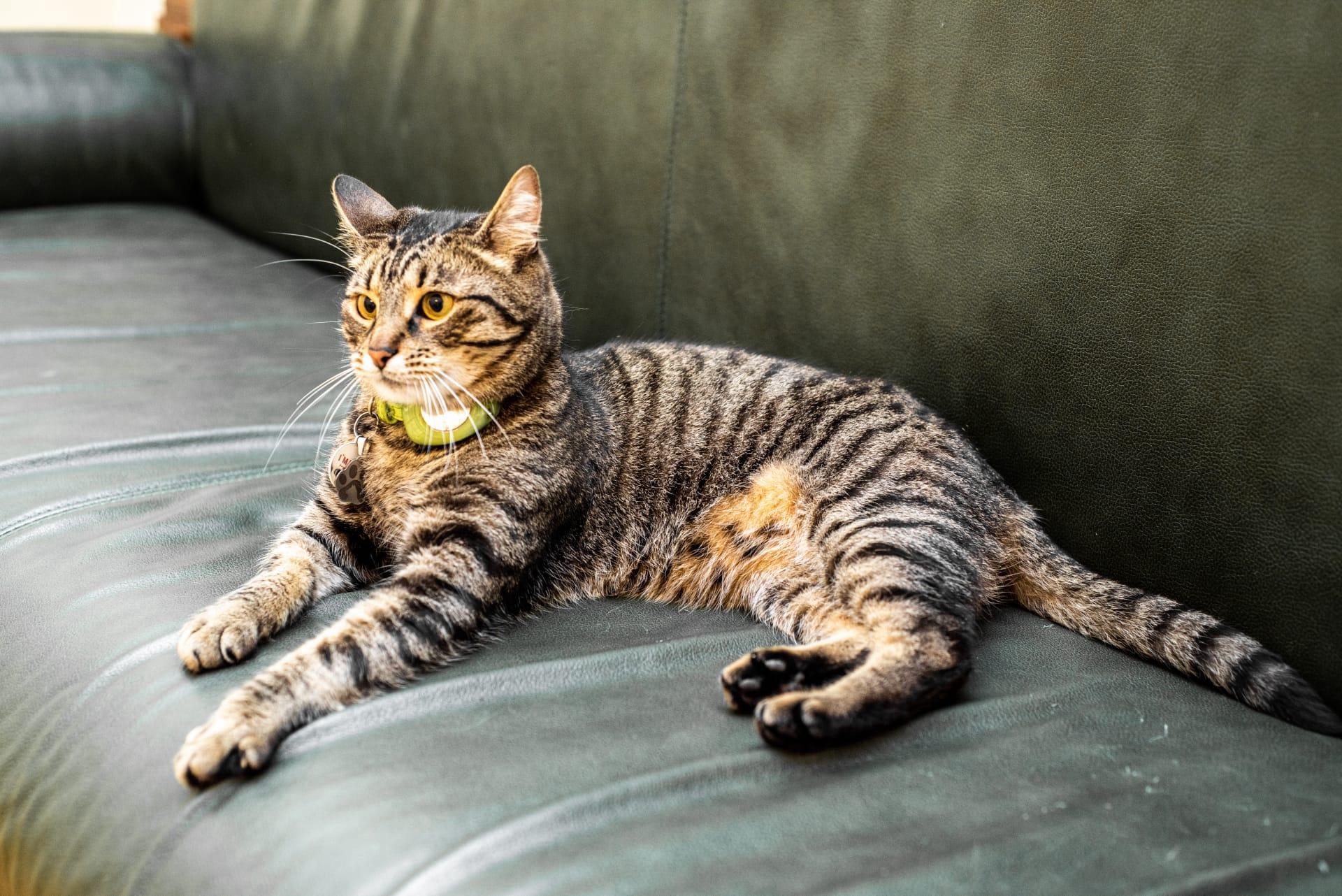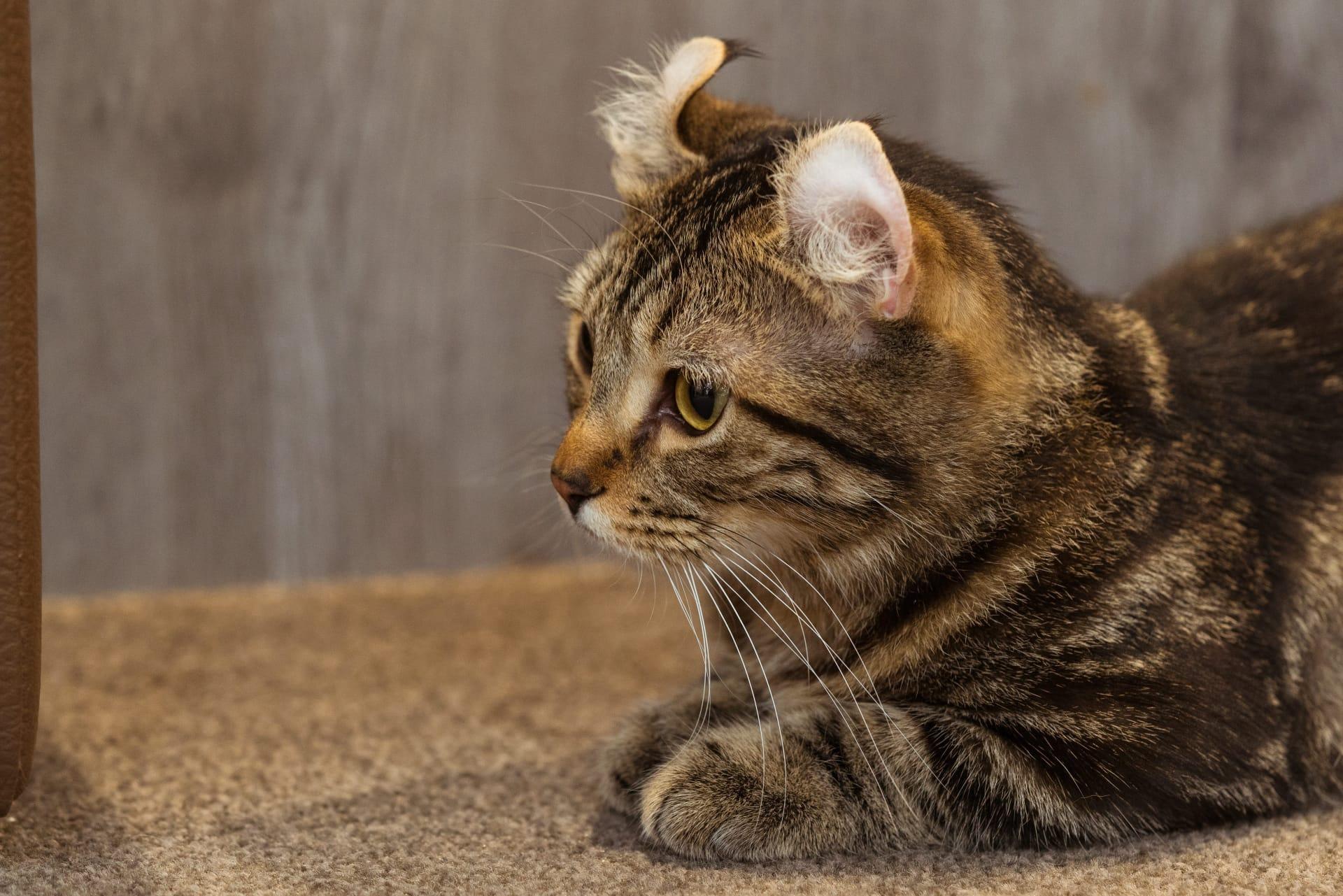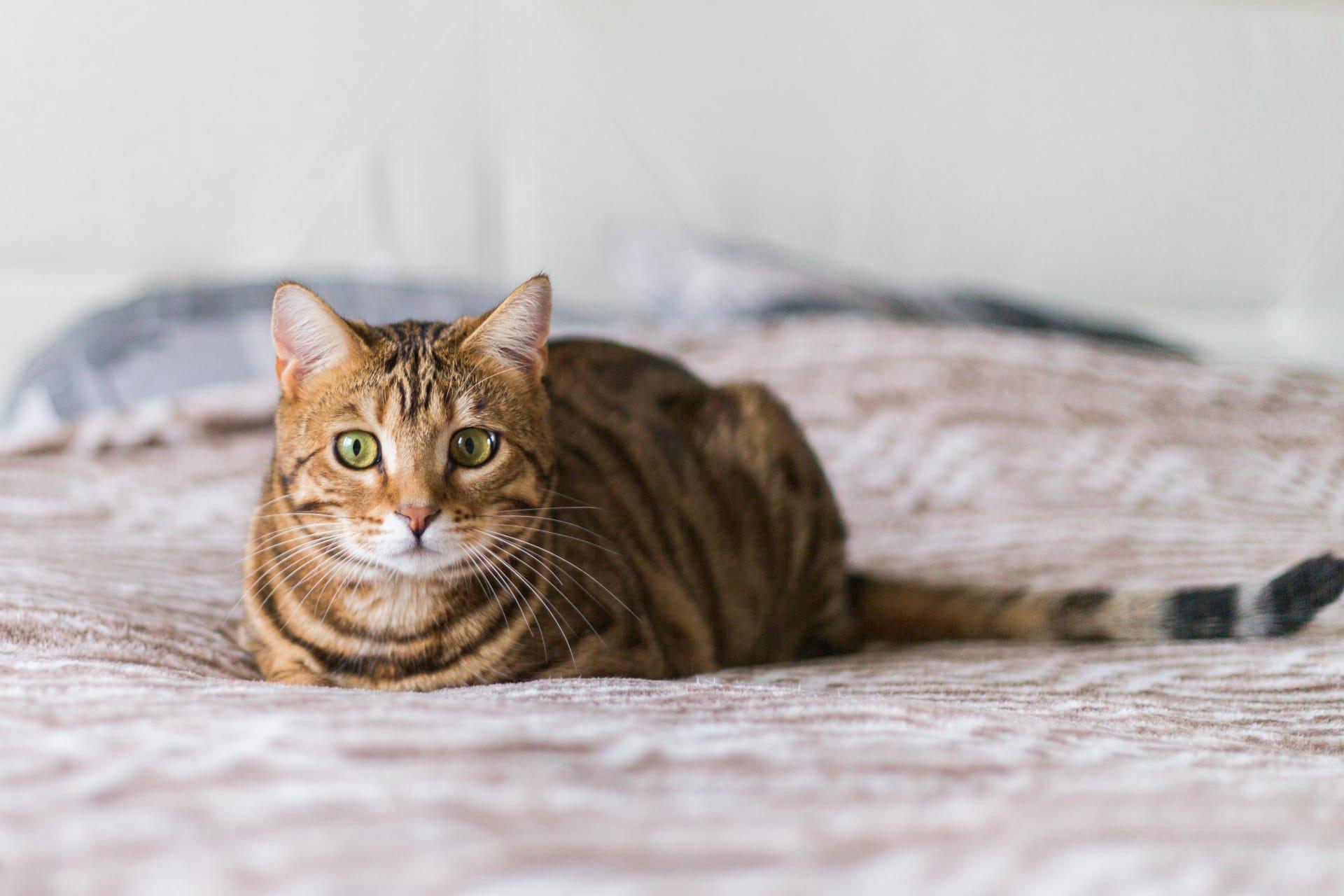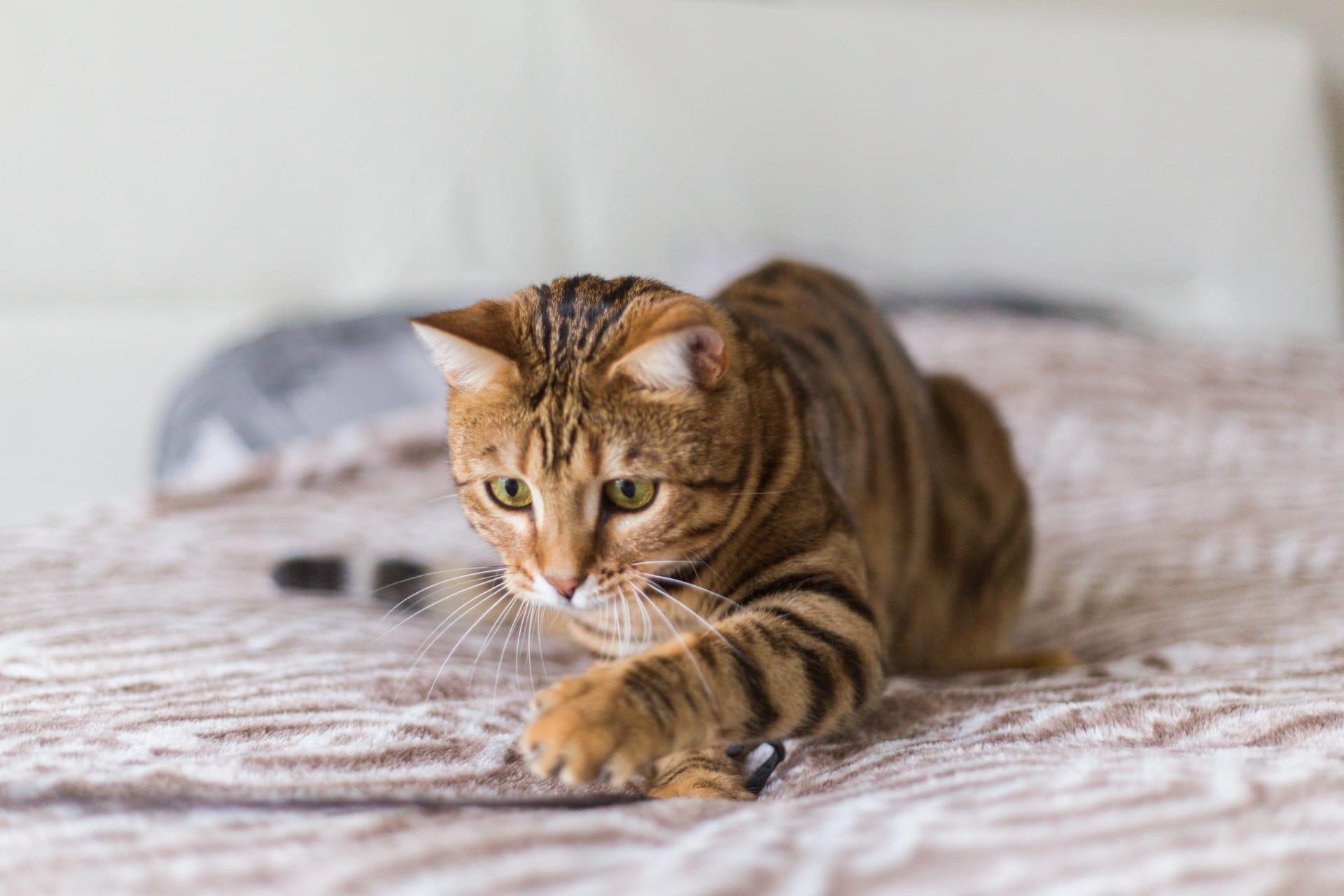1
The Toyger cat, a breed designed to resemble a toy tiger, showcases its wild appearance through striking coat patterns and muscular build. Originating in the late 1980s, this breed was developed by Judy Sugden, aiming to highlight the distinct mackerel tabby pattern that mimics the big cat's stripes. Unlike their ferocious look-alikes, Toygers are known for their friendly and playful nature. The breed's development involved selective breeding of domestic tabby cats that possessed desired traits, such as a rounded ear tip and facial markings similar to those of a tiger. This meticulous selection process has resulted in a breed with a robust and athletic physique, measuring about 8 to 10 inches in height and weighing between 10 to 15 pounds, embodying both the allure of the wild and the charm of domestic companionship.
Toyger cats are distinguished by their unique coat, which features bold, black stripes against a vivid orange or gold background. The breed's coat is designed to replicate the dense and luxurious fur of a tiger, complete with a pattern that extends all the way to the skin. This striking appearance is complemented by their high intelligence and sociable temperament, making them excellent pets for families and individuals alike. Toygers are also known for their adaptability, thriving in both active households and more tranquil environments. Their coat requires regular grooming to maintain its sleek appearance, and despite their exotic looks, Toygers share the same health considerations as other domestic cats, emphasizing the importance of regular veterinary check-ups and a balanced diet.

2
One of the Toyger breed's most fascinating traits is its genetic predisposition towards a friendly and engaging personality. Unlike many other breeds that were developed primarily for their physical attributes, Toygers were bred with a specific focus on temperament. This breeding goal has resulted in a cat that not only looks unique but also possesses a highly sociable and affectionate nature. Toygers are known to form strong bonds with their human companions, often seeking out interaction and play. They are particularly noted for their intelligence, which allows them to learn tricks and respond to commands, a quality that enhances their appeal as family pets.
The development of the Toyger cat has also had a conservationist aspect. Judy Sugden and other breeders involved in the Toyger project have been vocal about using the breed as a way to raise awareness for tiger conservation efforts. By drawing attention to the beauty and majesty of their wild counterparts through the Toyger's domestic allure, the breed serves as a living reminder of the importance of protecting endangered species. Additionally, some of the proceeds from Toyger cat sales have been donated to support wildlife conservation, highlighting the breed's role in promoting environmental stewardship.

3
Toyger cats exhibit an impressive adaptability to various environments and lifestyles, making them suitable for a wide range of homes, from apartments to spacious houses. Their playful yet laid-back nature means they can thrive in households with or without children and other pets. This adaptability extends to their learning capabilities; Toygers are known for their ease in being trained to use a leash, perform tricks, and even participate in agility exercises. This versatility is not only a testament to their intelligent and curious demeanor but also makes them an ideal choice for individuals seeking an interactive and engaging pet experience.
Despite their exotic appearance, Toygers are a relatively healthy breed with a lifespan of 12 to 15 years. However, they do share some common health issues with other domestic cats, such as heart murmurs and obesity. Responsible breeding practices have minimized the prevalence of genetic health problems, but regular veterinary care is crucial to ensure a Toyger's long and healthy life. Their diet should be carefully managed to prevent obesity, especially given their indoor lifestyle and potential for less physical activity. Engaging them in daily play and exercise can help maintain their physical health and mental well-being, ensuring these captivating cats lead a fulfilled and active life.

4
The Toyger's coat pattern is not only visually striking but also the result of a complex genetic puzzle that breeders have meticulously worked to solve. The breed's signature stripes are influenced by a specific set of genetic markers that control coat color, pattern, and distribution. These markers were identified and selectively bred over generations to achieve the Toyger's characteristic tiger-like appearance. The breed's genetic development involved understanding the inheritance patterns of these markers, which are also responsible for the cat's richly colored and patterned coat, making the breeding process both a scientific endeavor and an art form.
Engagement in environmental enrichment is crucial for the well-being of Toyger cats, owing to their intelligent and active nature. To keep them stimulated, owners are encouraged to provide a variety of interactive toys, climbing structures, and puzzle feeders that challenge their problem-solving skills. This not only helps in preventing boredom but also fosters a stimulating environment that nurtures their physical and mental health. The breed's playful disposition and keen intellect make them avid explorers of their surroundings, hence the importance of creating an engaging living space that caters to their adventurous spirit and innate curiosity.

5
The Toyger cat's breeding program is not only about creating a cat that resembles a tiger but also involves rigorous standards to ensure the health and well-being of the breed. Each Toyger is evaluated against a breed standard that includes physical traits such as body shape, coat pattern, and color, as well as health and temperament. This careful scrutiny ensures that the breed maintains its unique characteristics while promoting the overall health and genetic diversity of the population. The breeding program emphasizes ethical practices, including health testing for genetic conditions and ensuring that cats have a temperament suited to family life.
The Toyger's role in education and conservation extends beyond its visual appeal. Breeders and owners often use the breed as a platform to educate the public about the plight of wild tigers and the importance of habitat conservation. The Toyger cat serves as an ambassador for its wild counterparts, providing a tangible connection to the challenges faced by endangered species in their natural habitats. This educational aspect is integral to the breed's ethos, marrying the beauty of the domestic cat with a deeper message of conservation and awareness for wildlife preservation.